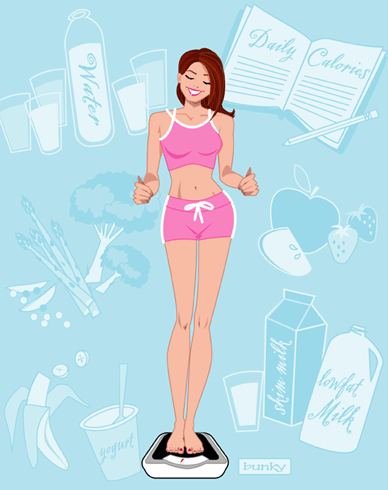
While I think I understand what love in the air means, I'm not certain about autumn! Then again, I'm not real certain about love!
I wish I were here to report that was all that was "in" the air. If you read the Did You Know? section the last few weeks, you know there are toxic clouds of concern floating around.
Whether we believe in global warming or not, most of us haven't filtered out the reality that we have a problem with pollution in the air
Yet, were you aware that the outside air may not be the greatest perpetrator? That the air inside of your home may be the silent killer?
While we do need to "clean" up pollution in our cities, we desperately need to "green" up the inside of our homes.
Over the next few articles, I'm going to address some of these problems while offering practical suggestions as a means of prevention.
What Are Some Of The Problems?
- The EPA studies of human exposures to air pollutants indicate that indoor air levels of many pollutants may be 2-5 x higher than outdoor levels. And in some cases, more than 100 x.
- Think about it. Where do we spend most of our time? In our homes, work, school., or play. Inside. Inside where we hope to find safety.
- We walk all over the toxic planet, then drag the poisons into our "safe" homes.
- We bring pollutants in via various forms, then close our windows and doors, sealing ourselves in for protection.
- The average home contains 3-10 gallons of hazardous materials.
- Typically a homes uses more than 60 hazardous products.
- Most homes have over 150 chemicals that have been linked to allergies, birth defects, cancer, and psychological abnormalities.
- The population most affected? Our children.
Give Your Home Mouth 2 Mouth!
- Our homes need ventilation. Adequate ventilation...to expel the toxins. How? Clean your air systems. Keep your filters changed and use quality air filters, not $1.95 down at Wally-Mart.
- Open your windows and doors when possible.
- Use a good vacuum cleaner. Quality. I use a Rainbow as it traps the toxic dust into the water instead of allowing it to take flight right back into the air or carpet...or up my nose!
- Use air-cleaners/purifiers. Again, you will have to research and find what really works. Depending on your home situation will gauge what you need. You may need a larger unit. You may need more than one unit. Too, you will need to keep the filter clean or you are defeating your purpose. We bought one once that was close to $500 and to this day, I still don't think it worked worth a flip. But maybe I wasn't using it the right way. Click here to see what Paul Harvey recommends.
- And on cleaning out your air ducts, you might want to check out what he EPA suggests. Take a peek at their doc, "Should You Have The Air Ducts In Your Home Cleaned?" Click on art. title to read it.
- You might elect to get rid of carpet. The more plush carpet will cause more sources for toxins to hide and store.
What About Those Wonderful "Air"-omatics?
While we enjoy the lovely aromas from many of our home products, we are dangerously exposing ourselves to poisonous fumes. We carelessly and sometimes innocently drape our homes with any number of toxic cleaners. And often we enjoy what seems like a pleasant organic aroma, not realizing that delightful smell might be destroying our health.
Here's an example of an aroma you may have never given much thought to. For sure, you probably never considered that it might be deadly or at least costly to your health.
You May Need To Come Out Of Your Closet?
How many of us use dry-cleaning as a way of life? OK, so you say you "took" it to the cleaners, so what does that have to do with the air "in" your home? Did you know that a key toxin in dry cleaning is perchloroethylene, PCE or "Perc"? It falls under other names and too many for me to mention in this article. Perc is the main solvent used in dry-cleaners to remove spots.
Have you ever been warned by your dry cleaners about the danger? I doubt it.
Perc enters the body via inhalation or ingestion. Like many toxins, it can remain stored in your fatty tissue. Please don't delude yourself into believing you can easily flush toxins out of your body.
So you innocently bring it into your home, and safely put your freshly "cleaned" clothes in your closet, locking Perc in for another day.
The CDC (Center for Disease Control) published a study that stated 1,708 dry-cleaning workers exposed to Perc had elevated, standardized mortality ratios for bladder, intestine, lung, esophagus, tongue, and cervical cancer. Also pneumonia and stomach and duodenum diseases. (Sources: Info on the study click here)
The EPA estimates 30,000 dry cleaners now use Perc. Many of the solvents like Perc end up contaminating not only us directly but via the soil. Perc for instance does not bind well to soil, so it rapidly moves into groundwater, where it refuses to completely dissolve.
Wouldn't it be foolish then to welcome Perc into the "safety" of our homes?
And we call this "cleaning"? It's cleaning...cleaning out your immune system.
So you say you are NOT going to give up the luxury of your nicely pressed clothes? Then in that case:
Please Take These Precautions:
- Learn which ones can indeed be washed on a gentle cycle. I have found 9x10, I can wash DCO clothes.
- If you must DC them, remove them ASAP from the plastic wrap and put them outside to "air" out before tucking them away in your cozy closet.
- There are "wet-cleaning" facilities you can use. Instead of toxic solvents, they use steam and mild soaps.
- Also, there are some "organic DC" facilities.
- CAUTION: PLEASE be aware that saying they are organic may be a scam. Organic can mean many things as there are no real standards...yet. "GreenWashing" may not be so green.
- Look for high quality cleaners. One that will answer any questions you have.
- CAUTION: What's a "hi-Q-DC"? You, as the consumer will need to be proactive as you look for DC's that truly practice quality dry cleaning standards. Ex: If your clothes smell, it may be that the dc didn't filter out the chemicals/solution the proper way. The "smell" may not even be chemicals, it could be someone else's stink! AKA OPB! Other People's Bacteria. Double yuck. Also, if you "smell" chemicals upon entering the cleaners, a red flag is waving! For a great article on DC 101 click here!
- Or you can "dry-clean" your clothes the old fashioned way...on the line!
 Avoid buying dry-clean-only clothes.
Avoid buying dry-clean-only clothes.Your Home-Work
Think about your daily or weekly cleaning habits around your home. Hopefully, you do have some! Sit down and write each and every cleaning product you use. Have your list in hand for the next article.
See you there!
Copyright © 2008 by Pilates Worx 4 Life. All rights reserved. Check out website: www.pilatesworx4life.com




 Enjoy
Enjoy











